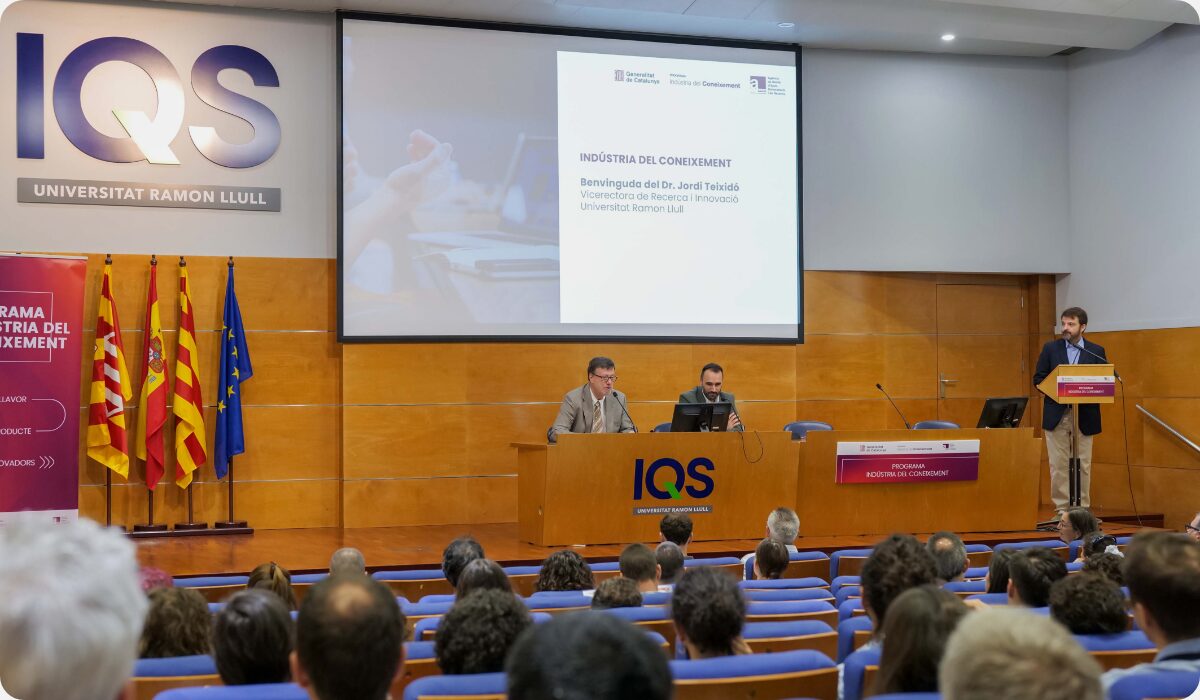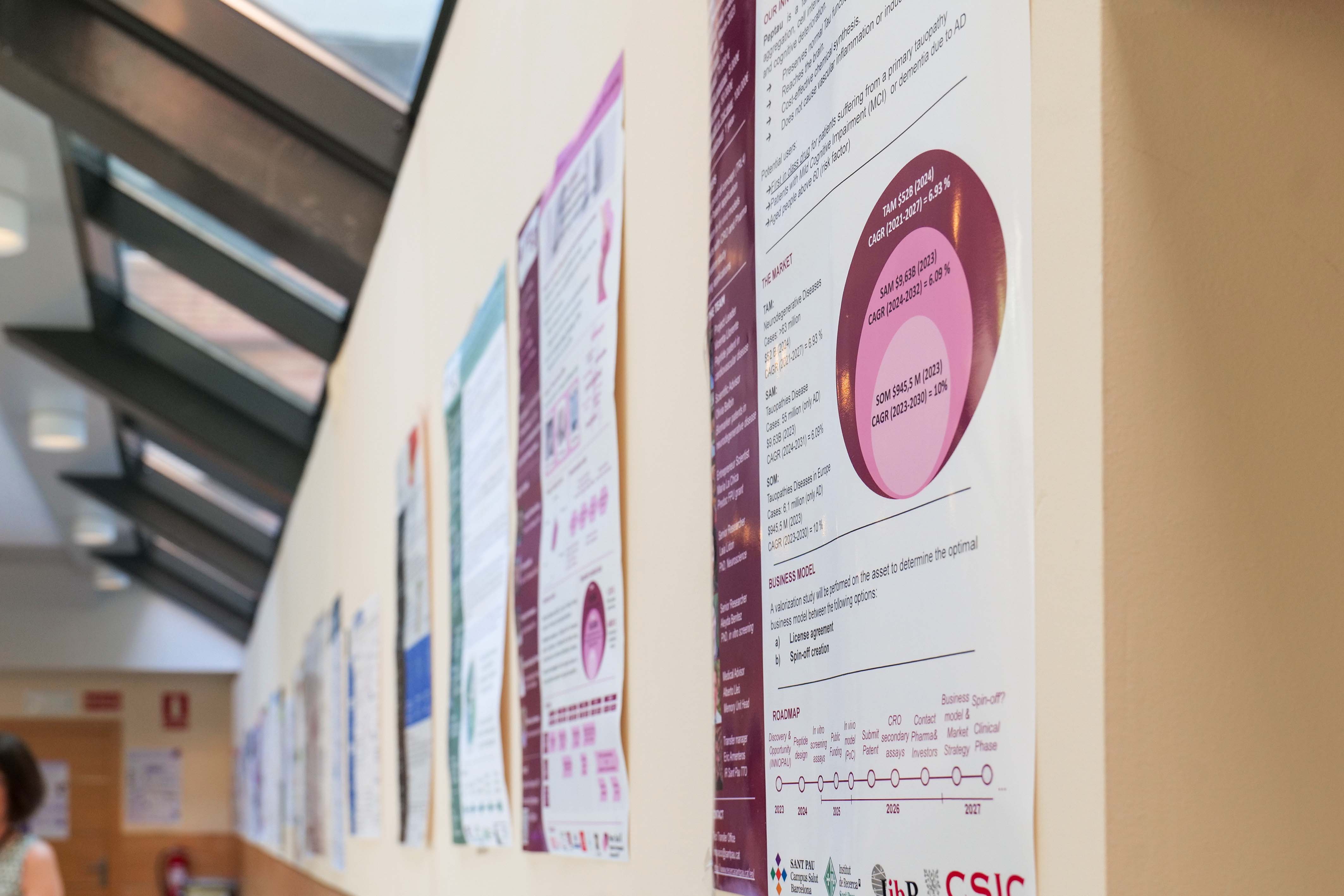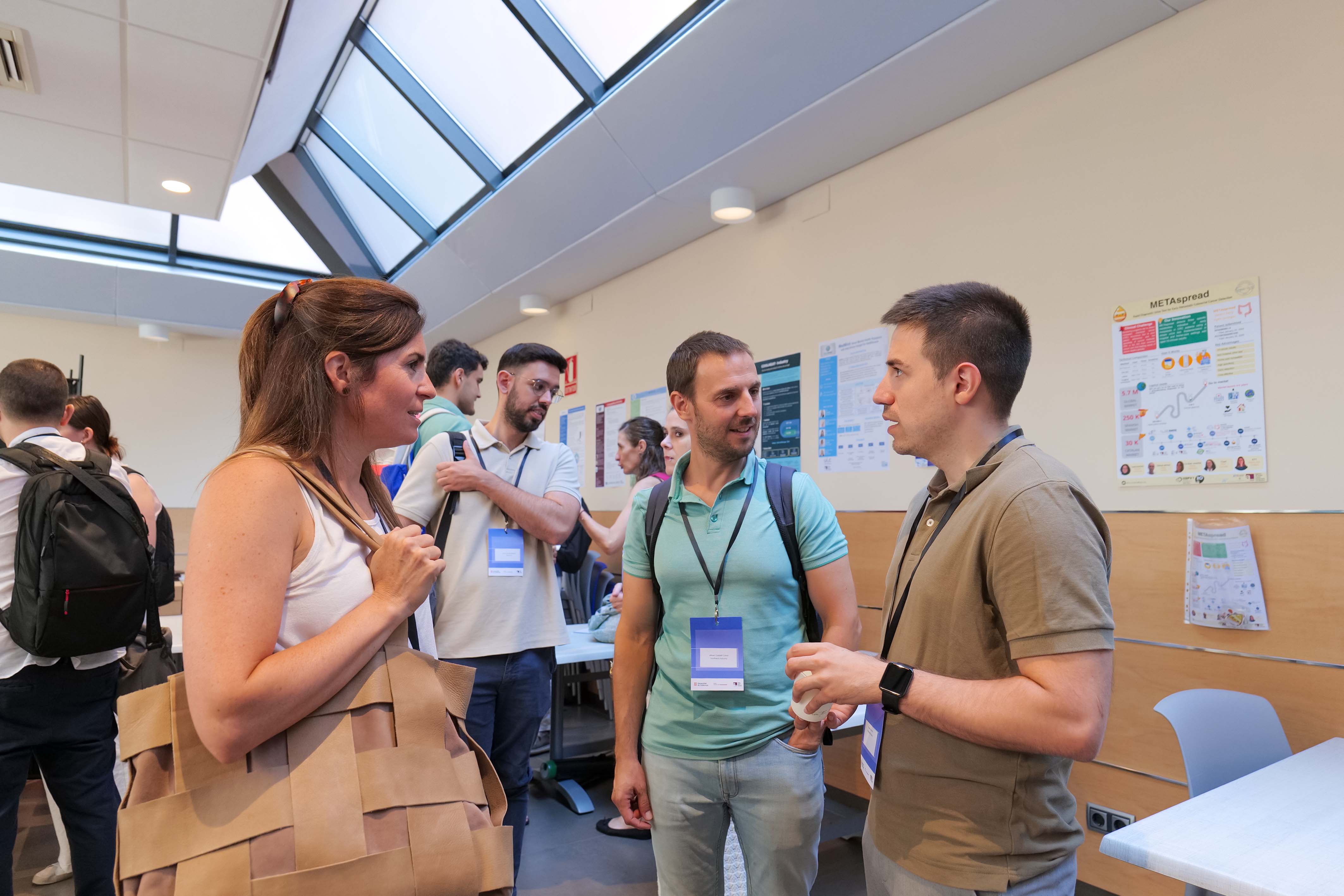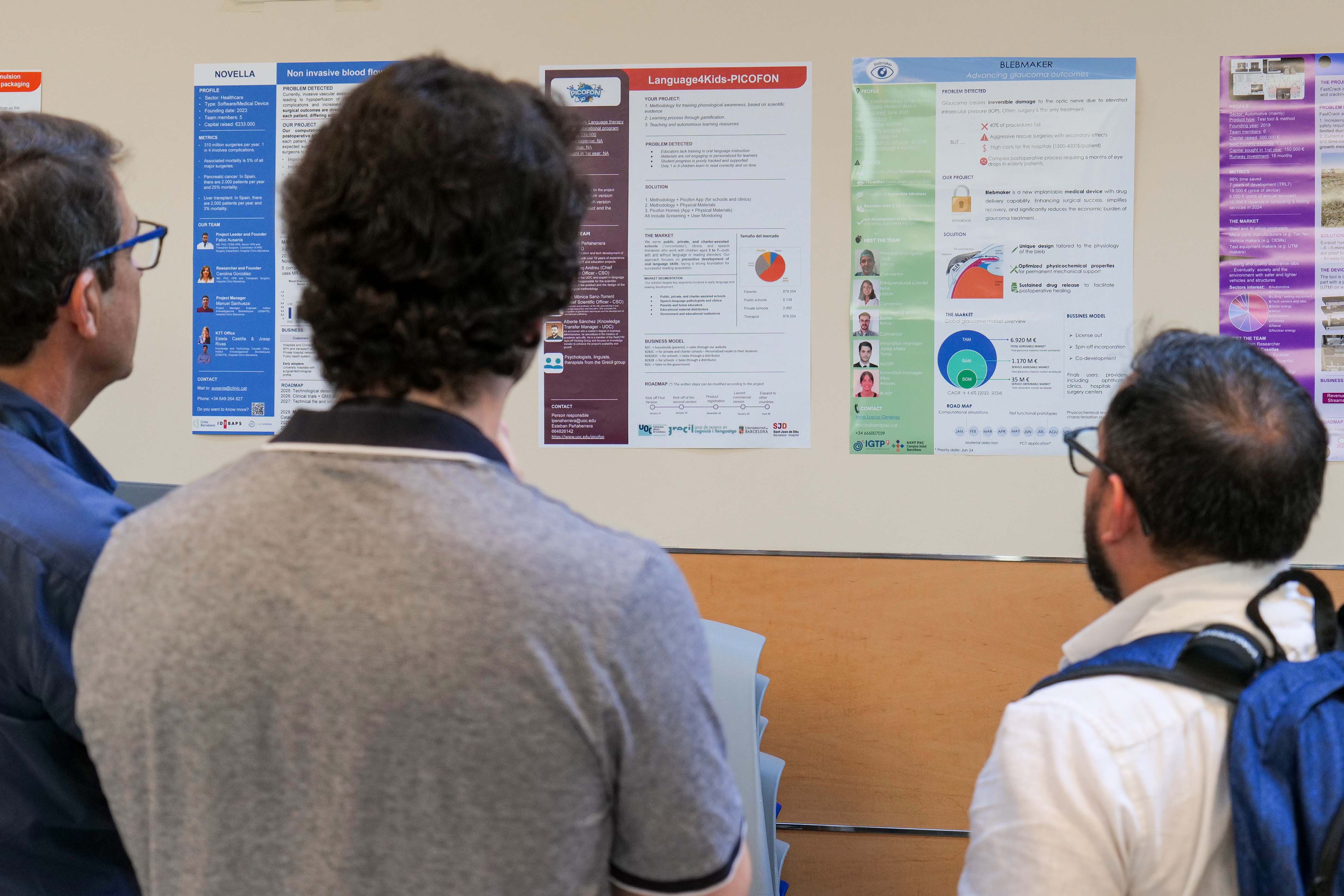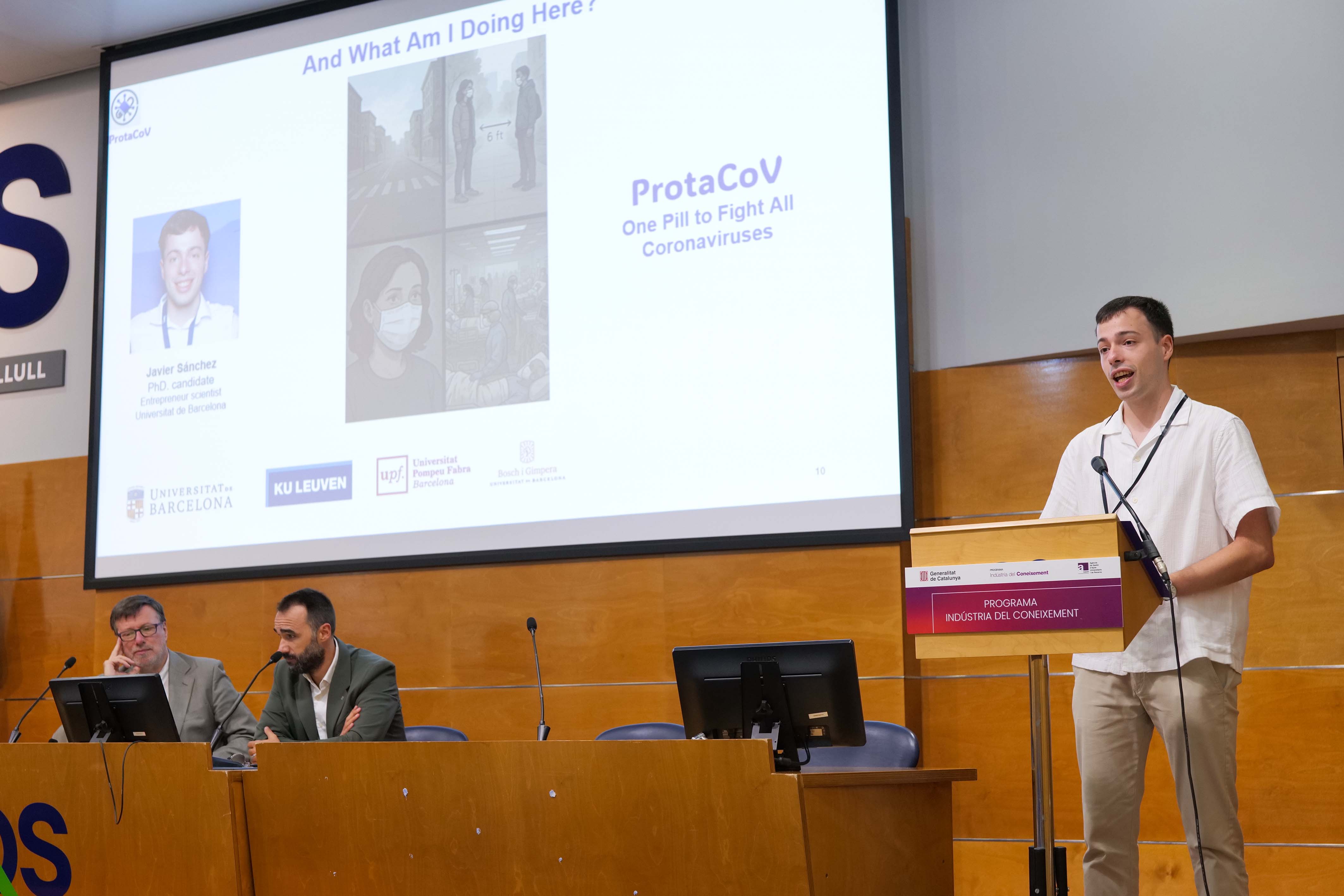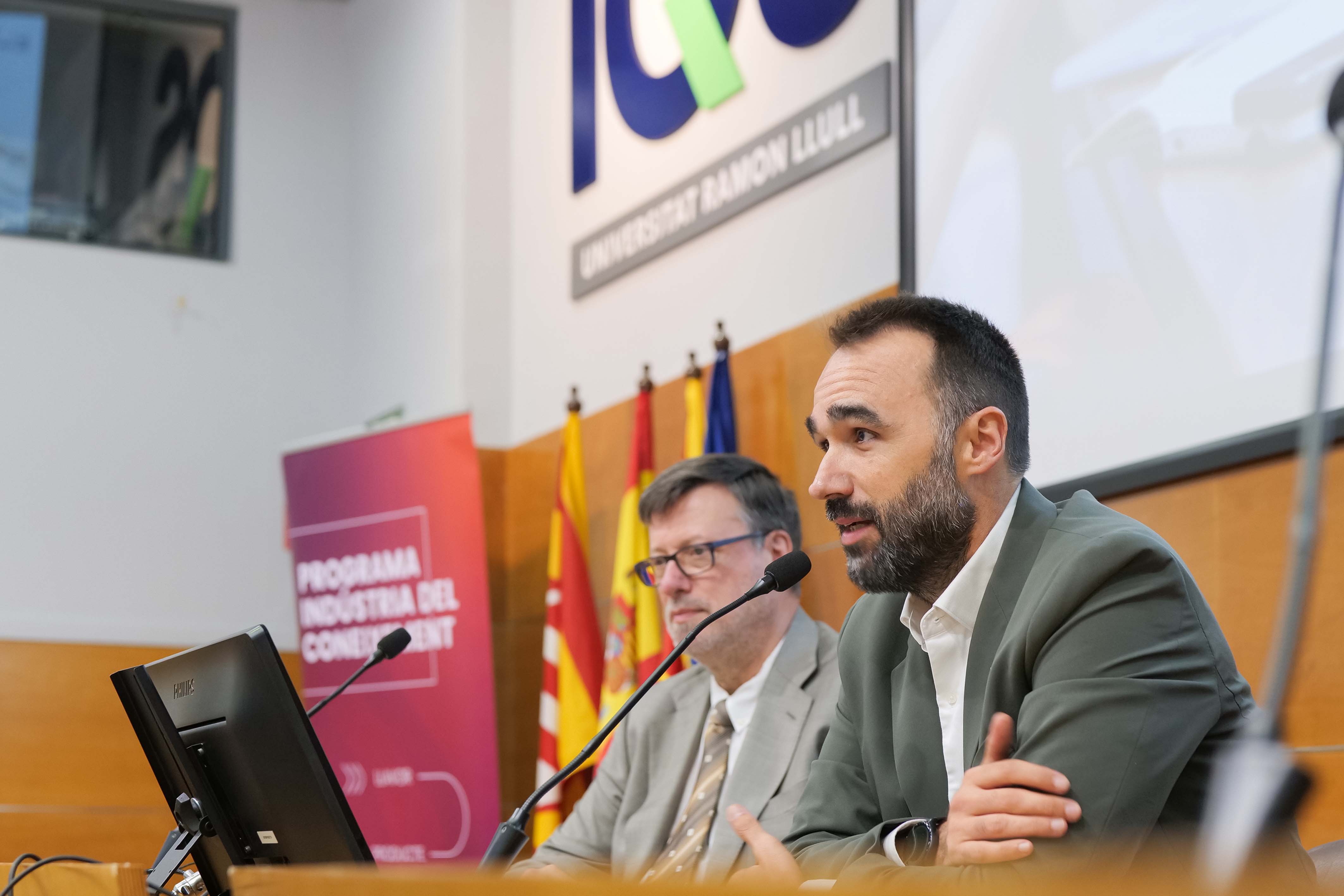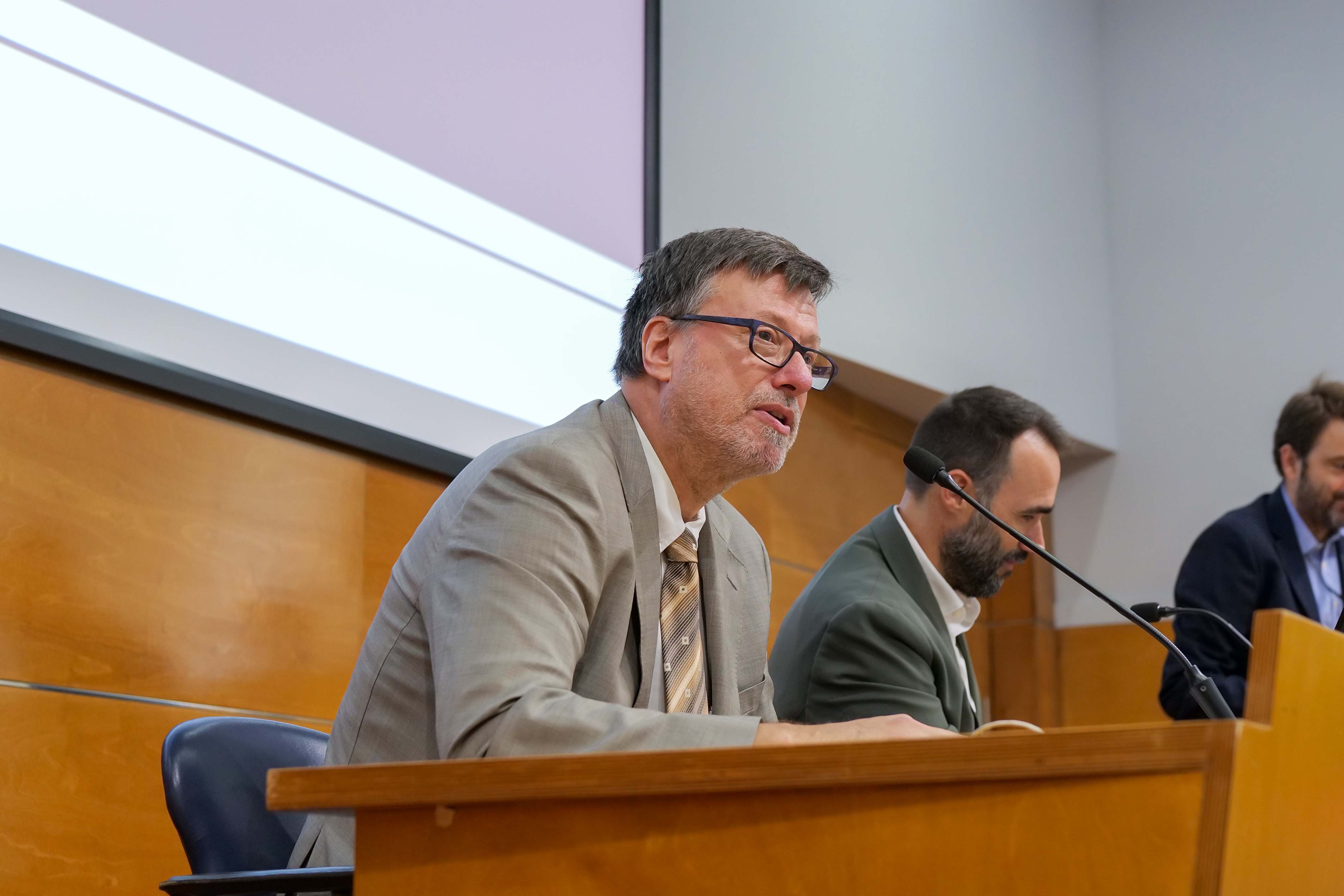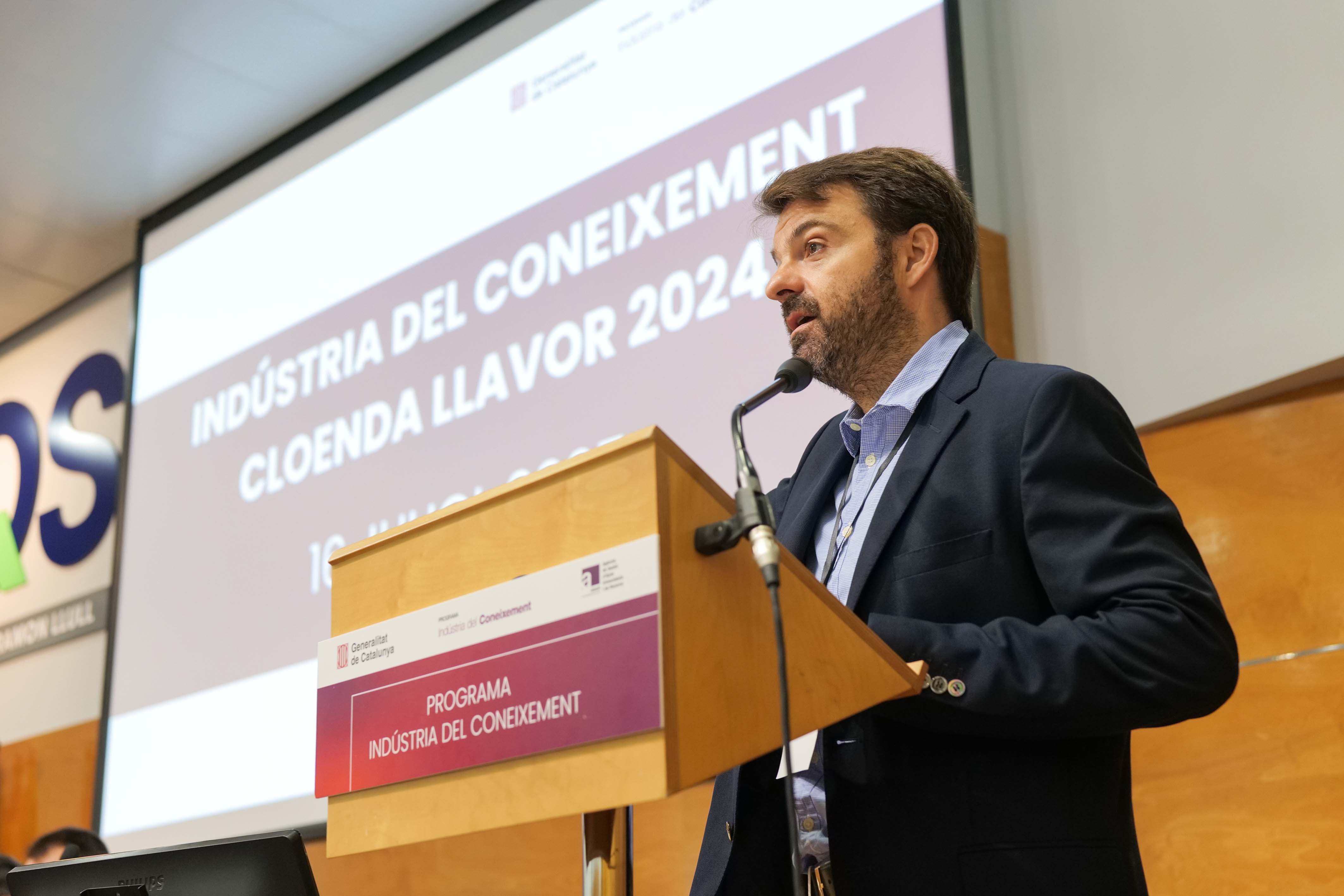El pasado 16 de julio, IQS acogió el evento “Investors’ Day & Feria de la Innovación 2025, organizado por TopBrands, en el marco dOn 16 July, IQS hosted the event “Investors Day & Innovation Fair 2025,” organized by TopBrands, within the framework of the Llavor Programme 2024 under the Agency for the Management of University Research Grants AGAUR – Knowledge Industry with the Government of Catalonia.
The event began with a lecture by Oriol Garcés from TopBrands, head of the programme and a key tutor for all participants, and also included the participation of Dr Jordi Teixidó, Vice-Rector for Research and Innovation at the URL, and Dr Javier Selva, Director of Transfer and the Knowledge Society.
Dr Teixidó welcomed the attendees with an acknowledgment that this year’s edition of the event was held at one of the schools that forms part of Ramon Llull University (URL), with IQS representing the URL school that has the most activity within the framework of the Knowledge Industry grants.
During his speech, Dr Selva highlighted how the Llavor Programme is integrated within the first link of innovation, a critical point in the transfer chain. He told us that we must continue working towards a more innovative Catalonia, as Europe requires from us, and that more added value is needed on a competitive basis. As a recent novelty, he informed us that Catalonia has climbed positions in the European innovation ranking, reaching among the 75 most innovative regions in Europe according to the 2025 edition of the Regional Innovation Scoreboard. Catalonia has maintained its strength in the “strong innovator” category and made a significant leap, going from 82nd to 72nd place among the 241 regions analysed.
Next, diplomas were presented to all the individuals who participated in the training and support programme associated with the Llavor grants, led by TopBrands.
The Llavor programme is aimed at innovative projects that are in the initial phase of conceptualizing a plan for transferring technology or knowledge and generating value in society. The support programme is aimed towards technical and commercial validation to reach a sufficient degree of maturity to guarantee the proof-of-concept phase. Mr Javier Sánchez, speaking on behalf of the participants in the programme, stated that “in these seven months I have learned how to transfer what is done in the laboratory to turn it into a solution for actual issues, something that can change society.” He gave special thanks to Tom Hockaday, an international leader in university technology transfer, referring to the fact that he has been especially inspiring.
Regarding IQS, the four projects that participated in this year’s edition and received a diploma included:
- MAGIC3RF – Multifunctional Materials for Green Integrated CO2 Capture & Conversion in RadioFrequency Heated System, by Dr Javier Fernández
- ADEVs Kit – Early Detection of Alzheimer’s: Developing an Innovative Blood-Based Diagnostic Kit Using Neuronal EVs, by Dr Francesc X. Guix
- nGSD-TAG – Development of a targeted therapy for the management of neurological glycogen storage diseases, by Dr Jordi Duran
- MaskAB – Consolidation of a platform for the conditional activation of antibody therapeutics, by Dr Cristina Díaz
Later, during the coffee break, the time for networking and getting to know the projects in greater detail opened up. All of the projects presented a poster and it was the moment to talk to each of the principal investigators.
During the second part of the event, two parallel sessions were held in which each project could be presented in a”pitch” format in front of the audience, including certain investors. On the one hand, attendees were able to hear nine proposals within the framework of projects in the fields of bio, health, medtech, and digital medicine devices, while in the other session there were eight projects in the areas of deeptech, tech, and sustainability.
In conclusion, it was a highly interesting event that gave visibility to disruptive technological projects that have come from our universities and research centres and which have a high potential for transfer, even in their earliest stages.
I am certain that this event served to establish contacts with other agents within the innovation ecosystem for all attendees.
Dr Nuria Vallmitjana
Director of IQS Tech Transfer










